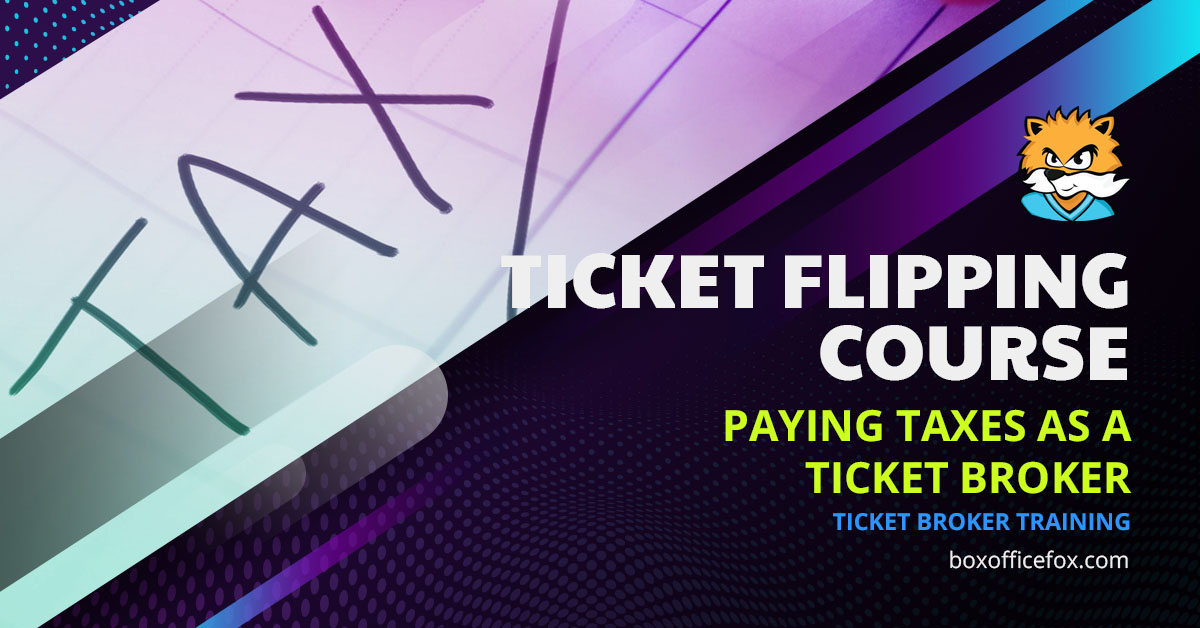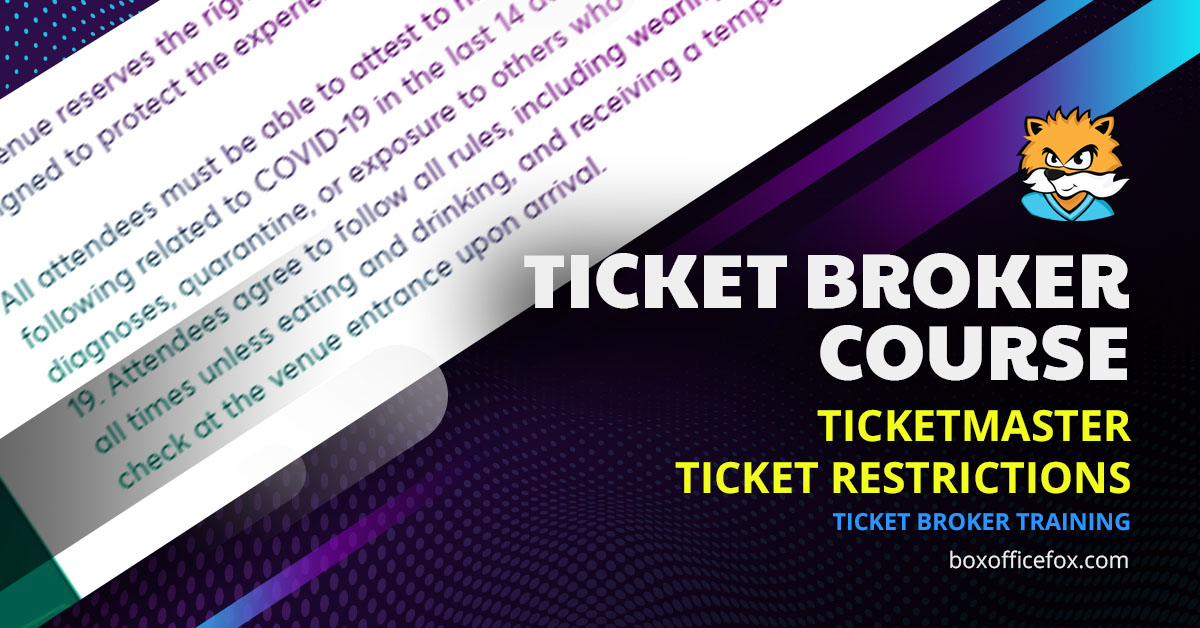Get the Newsletter!
Get the Box Office Fox blog delivered to your inbox and stay up to date with what tickets are going on sale soon. For ticket brokers. For fans. For music & sports lovers.
As a ticket broker and business owner, you’ll be expected to report your income, and pay taxes on your earnings.
Nobody likes paying taxes, but there are ways to get your tax bill down, and it starts with saving every one of your receipts so you can write off your expenses.
- Presale passwords
- Onsale dates and time
- Artificial intelligence powered predictions
- Broker picks for top events
- Advanced search filters
- Face value ticket prices, venue capacities
- Search up to 500 events per page
Your write offs will be deducted from your total income, which will help put you in a lower tax bracket so you’ll pay less taxes.
Here are some things you can write off as a ticket broker:
- Credit card annual fees
- Paypal, Stubhub, Ticketmaster, accounting, and bank fees
- The cost of tickets (this is your inventory cost)
- Office supplies – desk, pens, paper, phone, laptop, tablet
- Phone bill
- Internet bill
- If you work from home, you can write off a portion of your rent or mortgage as your office space.
- Meals – did you go for lunch with a colleague and talk business? Save that receipt to write off a portion of your meal.
- Gifts – did you buy a client concert tickets as a gift for their business? You can write that off too.
- Losses – did you take a loss on tickets? You can report that as a loss.
Every receipt counts and that’s why it’s important to keep good records. I recommend using a free Google Sheets spreadsheet with these columns:
- Category (Office Supplies, Tickets, Utilities, Dining)
- Description (Foster the People Tickets, Dinner with Client, Phone Bill)
- Payment Method (American Express, PayPal, Debit)
- Date (Date of transaction)
- Billing Period (I add a billing date so it’s easier to filter my transactions)
- Deposits (Income, Refunds, Reimbursements)
- Withdraws (Expenses)
- Write Off (Checkbox)
Learn more: How to use Google Sheets to sort and filter your data
You can use an app called Scannable to take pictures of your paper receipts and file them in Evernote. Digital receipts are easier and you can access those from your Ticketmaster and other online accounts.
Download the apps: Evernote and Scannable
Tax laws vary by state and province. We are not accountants or tax professionals. We recommend consulting with a tax professional. Explain that you are a digital entrepreneur (ticket broker) and they will be able to offer guidance to get you on track.
Google the tax brackets in your state so you get an idea of how much taxes you’ll be expected to pay based on your income. And take some time to study up on your local tax laws yourself. There are plenty of free YouTube videos to help you.
To be safe, prepare to save 20% of your income for taxes. At the end of the year if you owe less, then congratulations, you won the tax game. Treat yourself and use the rest of your tax return to re-invest in your business.
Do not stress yourself out and say that you’ll put a bunch of money away at the end of the year. Putting money away from each sale will ensure you don’t get stuck with a big tax bill. It will take financial discipline and organization to get ahead – not just with being a ticket broker, but in life, so learn these good habits now!
- Presale passwords
- Onsale dates and time
- Artificial intelligence powered predictions
- Broker picks for top events
- Advanced search filters
- Face value ticket prices, venue capacities
- Search up to 500 events per page








Leave A Comment